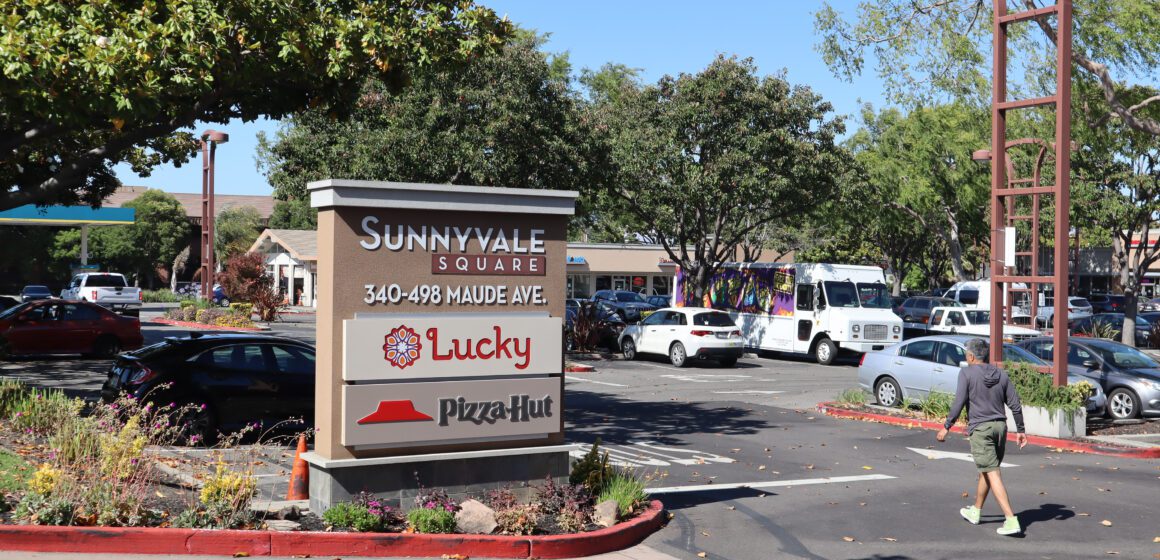One of Sunnyvale’s proposals to build more housing threatens to demolish several grocery stores, and city fixes haven’t patched the problem.
The Sunnyvale City Council unanimously approved an overhaul of the Village Center Master Plan Tuesday. The new plan redefined how seven aging retail spaces, called village centers, will be zoned for commercial, residential and mixed use. Cementing these details will help protect some of North Sunnyvale’s grocery stores — including the biggest one, a Lucky’s Supermarket — but won’t stop development proposals that have already been filed.
The city has already received and approved development proposals for some of the sites, including Lakewood Shopping Center and Fair Oaks Plaza. The proposals include razing existing businesses to build about 182 townhomes.
The original 2017 plan was meant to encourage redevelopment of the centers. But as proposals came in, residents grew concerned that upgrading the sites threatened the removal of grocery stores and food resources in historically underserved neighborhoods.
More than 1,800 people signed a petition calling for the city to halt the projects. Himanshu Sethi, who lives in the San Miguel neighborhood, organized the petition and said he was disappointed that the council adopted the master plan without deeper protections for grocery stores and necessary retail amenities.
Sethi said he wants the city to be more specific in its zoning, because giving a broad definition of “retail” doesn’t protect businesses that provide necessary services. He wants to learn more about possible programs to support the small, family-owned businesses that’ll be displaced in the redevelopment, such as Speedy’s Tacos or Taj Mahal Fresh Market.
“The city can do a better job at planning for these things, to make sure these vital services and these vital businesses don’t go away,” Sethi told San José Spotlight. “This area will become a food desert and not enough urgency is being put into preventing this crisis.”
Councilmembers lamented Senate Bill 330, which makes it easier to build affordable and moderately priced housing by limiting local government control. The 2020 law allows developers to request unlimited waivers on city requirements, including retail requirements.
“I have heard over the past year and then from some of my residents, from my constituents in North Sunnyvale, about the impact of loss of retail, the loss of fresh food, the loss of grocery stores,” District 5 Councilmember Richard Mehlinger said at the meeting. “What makes it painful is what little power it feels that we have under existing state laws to prevent these objectively destructive changes.”
SB 330 limits the city’s ability to deny projects, so Lakewood Shopping Center and Fair Oaks Plaza are still on the chopping block. The city launched an incentive program for these locations, allowing developers to decrease or remove the projects’ affordable housing to increase their retail footprint, but the program has yet to see results.

Brittany Behr and her fiance Leland Bond moved to the San Miguel neighborhood about four years ago. They frequent the small and family-owned businesses at Fair Oaks Plaza, which they said are the only restaurants and grocery stores within walking distance of their neighborhood.
“We both really support housing and adding housing, especially making housing more accessible,” Behr told San José Spotlight. “The problem is, we feel that the land use is really inefficient and that sacrificing these businesses that are a backbone of the community isn’t the answer.”
Contact B. Sakura Cannestra at [email protected] or @SakuCannestra on X.



Leave a Reply
You must be logged in to post a comment.